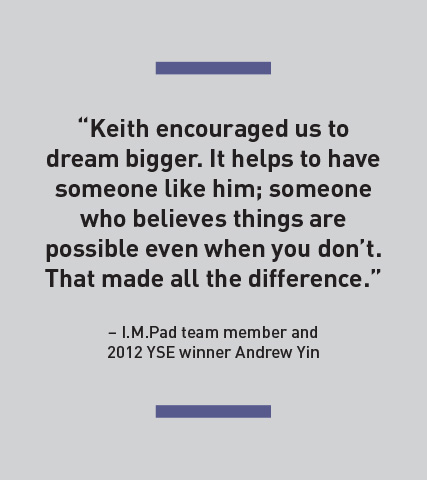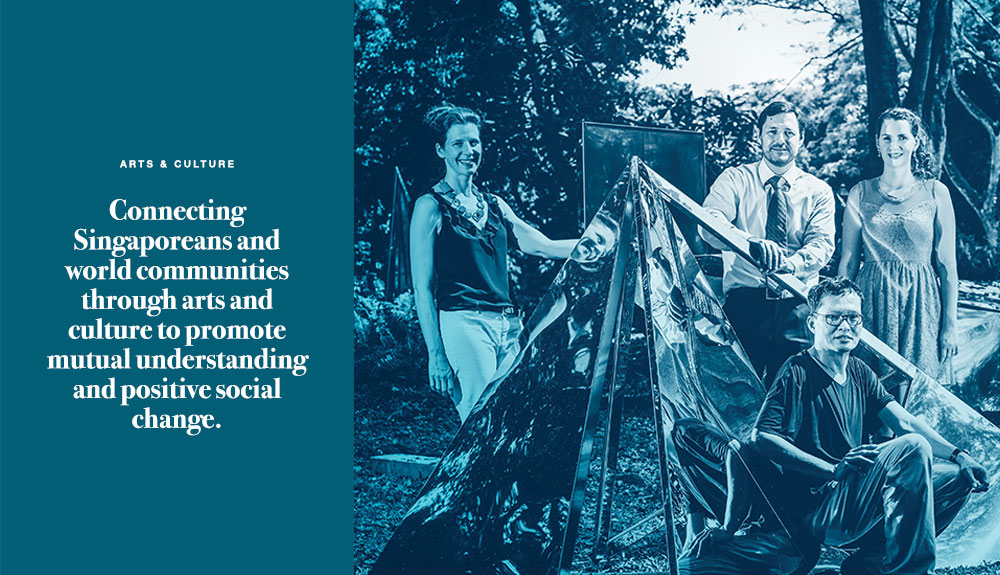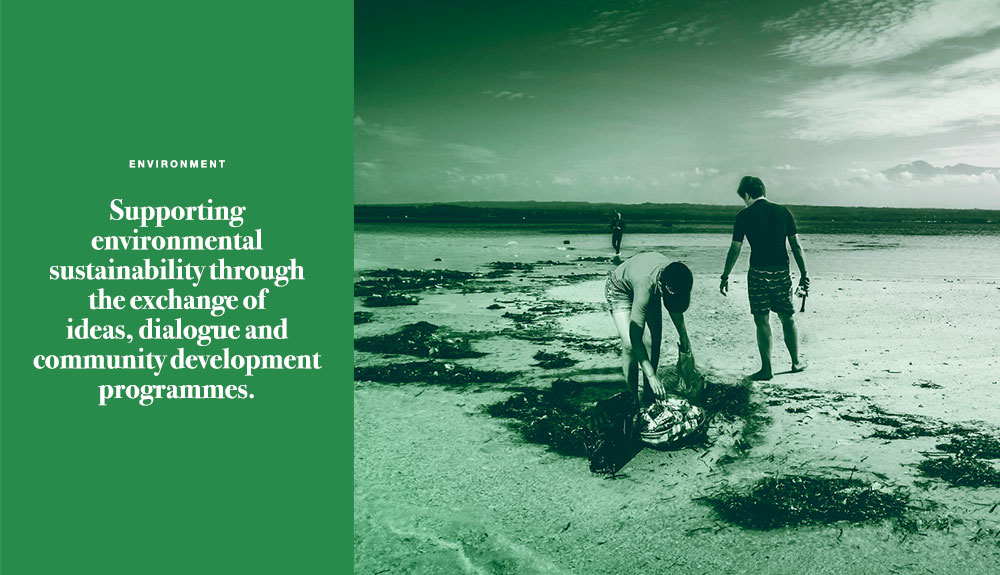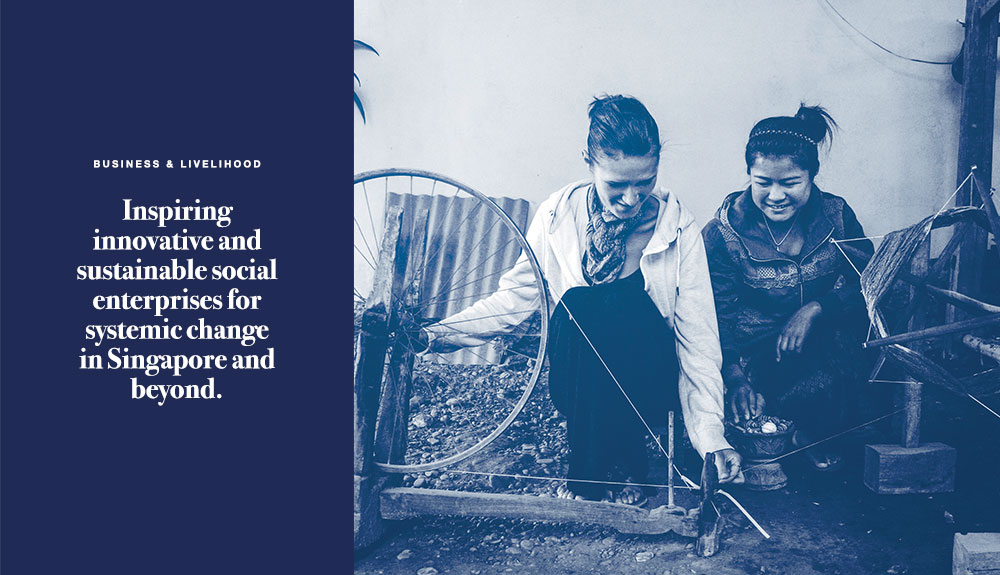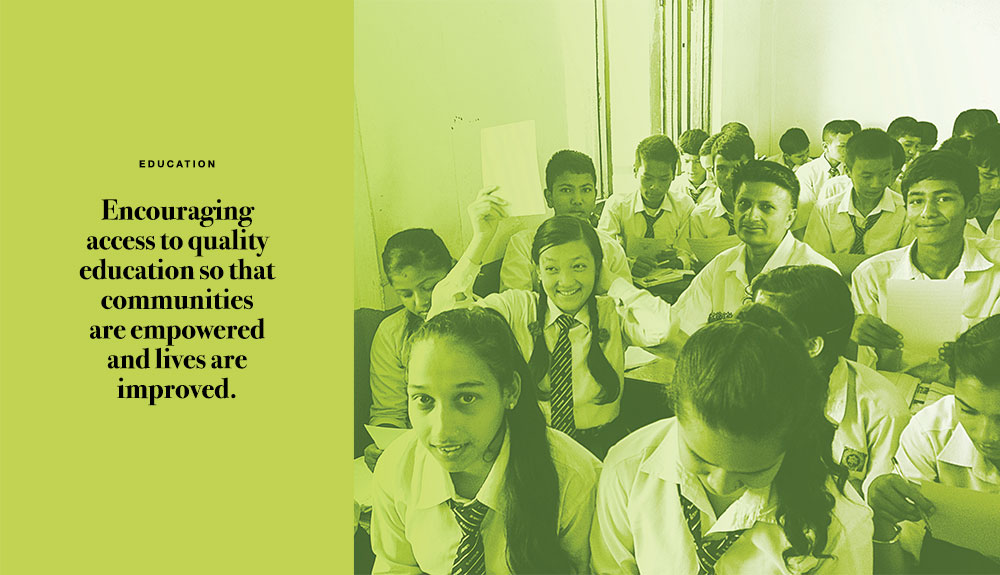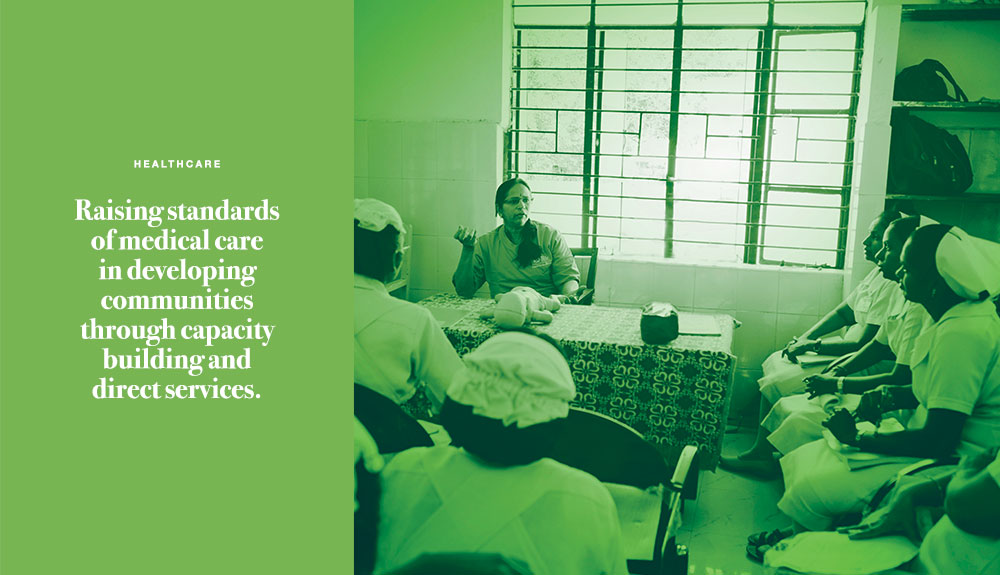
Keith Chua is passionate about giving back to the community at large. And he is in a good position to do so, as founding member and chairman of Asian Philanthropic Ventures, a philanthropic organisation that invests financial and non-financial resources in organisations with social purposes to help them achieve impact.
Since 2012, Chua, 63, has been a judge for the Singapore International Foundation’s (SIF) Young Social Entrepreneurs (YSE) programme, which nurtures youth of different nationalities to start or scale up their social enterprises in Singapore and beyond. He has appraised his fair share of youth, many of whom have gone on to start businesses with a heart. Although he was not an assigned mentor for the YSE, he advised numerous teams informally after the judging was over.
He explains: “My role is like an informal adviser to the young participants after the judging is over. The YSE programme is a good platform for Asian Philanthropic Ventures to interact and engage with social entrepreneurs, both practising and potential.”
But ask him for the YSE winner he remembers best, and he enthuses about one that was innovative but, unfortunately, did not eventually succeed commercially. That 2012 proposal was for a low-cost, biodegradable sanitary pad called Innovative and Manageable sanitary Pad (I.M.Pad).
At Chua’s encouragement to seize the day, one of I.M.Pad’s team members, Andrew Yin, now 25 and an e-commerce executive, took a year off from his studies at the National Technological University after winning the YSE to make the business work in India.
Through the SIF network, Yin was paired with Indian company Aakar Innovations, which was doing similar work, to test I.M.Pad’s pricing and the feasibility of using absorbent plant fibres from the water hyacinth, a plant that grows abundantly in India. Unfortunately, the I.M.Pad could not be commercialised – tests found that the sanitary pads could not be mass-manufactured due to the extraction process of the plant fibres – and Yin had to return to Singapore. But he remains in contact with Aakar Innovations, exploring collaborations to offer sanitary pads in South-east Asia where the lack of sanitary pads results in problems, like low school attendance among girls.
Yin says he appreciates how Chua and Asian Philanthropic Ventures connected them with other organisations like the philanthropy advisory branch of Credit Suisse. He says: “We thought we’d just start small but Keith encouraged us to dream bigger. That encouragement led me to India. It helps to have someone like Keith; someone who believes things are possible even when you don’t. That made all the difference.”
In turn, Chua says he is inspired by the drive and enthusiasm of young social entrepreneurs like Yin. We speak to Chua about his philanthropic journey and nurturing the next generation of social entrepreneurs.
1 What inspired and started your philanthropy?
My parents were extremely generous, which stuck with me. My great-grandmother, Mrs Lee Choon Guan, had an impact on me later in life when I learnt about her philanthropic work from 100 years ago. She supported education, medical and health initiatives in Singapore and, as the founding president of the Chinese Women’s Association, was instrumental in bringing women together to help themselves and the community. Finally, my faith and spiritual conviction have continually undergirded my motivation and commitment to helping others.
The starting point was becoming a trustee of the Mrs Lee Choon Guan Trust Fund 30 years ago. From there, it evolved into a direct involvement with specific charities and engagement in a wider area of philanthropy. About 10 years ago, I asked the dean of the National University of Singapore’s Business School, of which I was an alumnus, whether he had considered including philanthropy in the curriculum. Eventually, the Mrs Lee Choon Guan Trust Fund initiated and funded the Asia Centre for Social Entrepreneurship and Philanthropy as a research centre within the business school. (Chua is now the advisory board chairman of that centre.)
2 The 2012 Young Social Entrepreneurs team I.M.Pad left a strong impression on you and the other judges during the programme. Why?
We were particularly excited about I.M.Pad because it was potentially impactful and creative. It addressed a particular need – feminine hygiene in India – with a solution that had a positive environmental impact.
(After the YSE), we met the group regularly for two years. My advice was that if they were really committed to the project, the best way was for one or more of them to test the prototype in the field. It was not easy advice, but it would have been difficult for them to take the project to the next level part-time. We also put it to them to think it through carefully and see how it would fit into their career plans.
Even though (I.M.Pad) hit a roadblock and did not succeed commercially, its ideas were very innovative and met the needs of communities. It had potential for great social impact. I think in life if you shelve something, the likelihood is that it will stay shelved. Do it while the drive is strongest.
3 How have your interactions with YSE participants inspired your own work?
I have learnt a great deal about other cultures and societies through YSE. I did not have much opportunity to give insights on Singapore. I think it is more important for us representing Singapore not to give the impression that we know or have all the answers. Through YSE we are in constant engagement on how to make the world a better place. We have input that will help, and so does every participant from outside Singapore. The interesting observation is that the youth today seem more engaged and interested in ways to bring positive change to communities. It may be a result of a widening base of youth with the opportunity to learn and also connect through technology.
4 Why should young people explore social entrepreneurship?
I feel that our youth can extract valuable life lessons if they have opportunities to participate in social entrepreneurship initiatives. The theory is not too difficult to impart, so the main value comes from the actual experience. Much of business learning comes through failure rather than success.
Impactful social enterprises need to lead to positive change and be driven by care, compassion and concern. Individuals in social enterprises need to have empathy for humanity and the world we live in.
5 As a social enterprise, how important should making a positive cross-cultural impact be?
Cross-cultural exposure will help us learn about differences in ethnicity, economic diversity, nationality and so on. If one is interested to help in another culture or country, we must understand the differences between that society and the one we come from, so that whatever initiatives we undertake will have the best outcome. For me, it is important to show respect for different cultures, regardless of what our views may be. There is a reason for everything.
6 How do you think you have benefitted from being so deeply involved in philanthropy?
I hope philanthropy will help me become a better person. Giving to a more needy person, helping someone needing help – whether it is in money or time – moves me from self-centredness towards selflessness. It is a lifelong process. When I see the positive results of philanthropic efforts, it motivates me to keep persevering.
Well-engaging philanthropy takes time and will have risks, so we have to learn, correct and continue.

